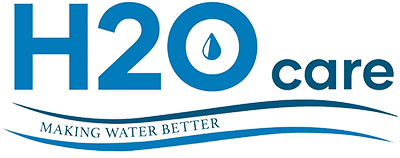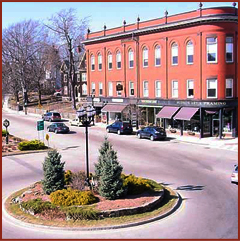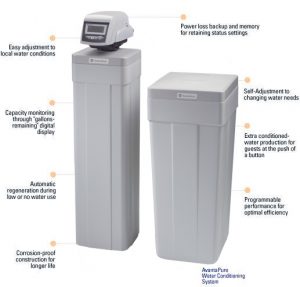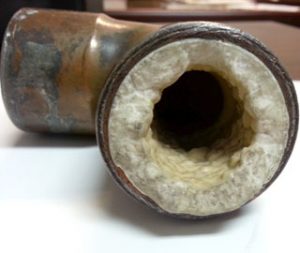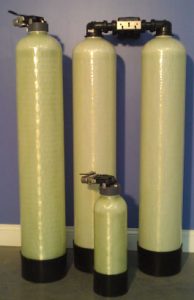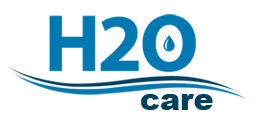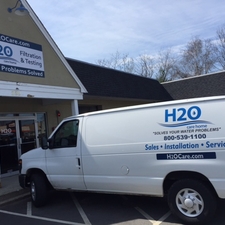WATER SOFTENERS
As a Hudson, MA resident, you likely have the town supplying your home with water but may have a private well, both of which may benefit from a water softener or other water filtration system. Later in this write-up, specific contaminants that are commonly found in Hudson private wells and the public water supply are identified and effective water filtration or water softener methods are covered. Excellent water quality is achievable with the proper approach.
WATER SOFTENER INSTALLATION
A water softener is typically installed to remove hard water minerals, dissolved iron and manganese in the water through a technology called Ion Exchange. A high efficiency water softener uses much less water and salt in the system’s self-cleaning (regeneration) cycle than older water softener systems. Particulate iron or manganese (which is visible in the water) can be removed with properly sized sediment filtration. For more information about iron in water, see the article at the following link: Iron Article in Water Technology Magazine. For more information on Manganese in water, see the link at: Manganese in Water Article in Water Technology.
COMMON WATER CONTAMINANTS
Some common issues encountered in Hudson are manganese, iron and hard water. Private wells may also experience low pH and sometimes the health threats arsenic and radon. Hydrogen sulfide is evidenced typically by a rotten egg smell in your water. This may also be caused by high Manganese levels in the water as well. This problem is easily correctable with a water filtration system design specifically for this purpose. It is particularly important to know if your private well water contains health threat contaminants, therefore water testing is an important first step.
RADON & ARSENIC IN PRIVATE WELLS
REMOVE RADON FROM WATER
If testing results for Radon exceed the current Massachusetts guideline of 10,000 pCi/L (Pico curries per liter) in water, the radon must be removed from the water and it is recommended testing the air for Radon as well. It should be noted that New Hampshire requires action if radon is only at 2,000 pCi/L. Maine and Rhode Island actionable levels are at 4,000 pCi/L. Radon is effectively removed with a system that agitates the water in a sealed chamber, then vents the released radon gas safely outside of the home. This equipment is installed at the water supply’s point of entry into the home. For more information on radon see the link at Radon in water.
REMOVING ARSENIC FROM WATER
The maximum allowable level of Arsenic in drinking water per the EPA is .01 mg/L (miligrams per liter) or 10 parts per billion. Removing Arsenic from water requires running the water through tanks containing a specific media that is arsenic specific and captures it, preventing it from flowing into the home. Starting with a water test is imperative to determine the level of arsenic and what form it is in.
BAD TASTES & ODOR IN WATER
You may experience different types of objectionable tastes and odors in your water. If your home is supplied by town water, you may notice odor and taste associated with Chlorine as this is used for disinfection purposes by the town to control microorganisms including bacteria and others. Carbon water filtration systems are effective at removing chlorine and the associated taste and odors that come with it. These systems can either be installed at the point of entry in your home, typically in the basement, or at a point of use for drinking water only. For more information about various common taste & odor issues, see the link at https:/bad-odor-taste-water/.
H2O Care is an established water filtration and testing firm, formed in 1989 with offices in Hudson (439 Main St.) & Middleton, MA. Articles published by the Company can be seen in Water Technology Magazines linked through the website at http://h2ocare.com. We can be reached by email at service@h2ocare.com or by calling 978-777-8330.
